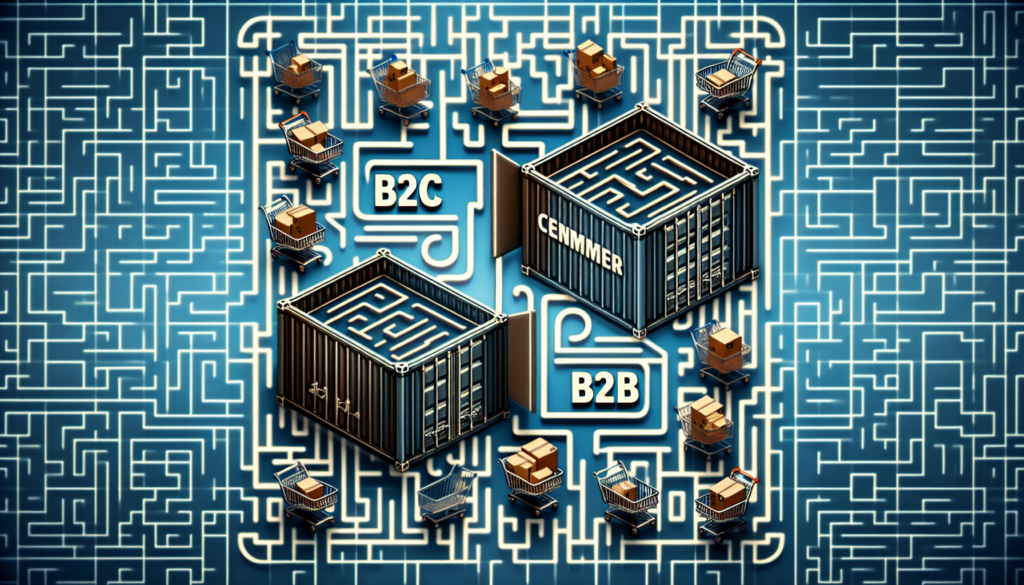B2C fulfillment, or business-to-consumer fulfillment, focuses on delivering products directly to individual customers. This type of fulfillment requires a high level of efficiency and accuracy to meet the demands of today’s online shoppers. Orders must be processed quickly and accurately, with a strong emphasis on customer satisfaction. In B2C fulfillment, the customer experience is paramount, with fast shipping and easy returns being key factors in driving repeat business.
On the other hand, B2B fulfillment, or business-to-business fulfillment, involves delivering products to other businesses for resale or internal use. B2B fulfillment typically involves larger order volumes and longer lead times than B2C fulfillment. Accuracy and reliability are crucial in B2B fulfillment, as businesses rely on timely deliveries to keep their operations running smoothly. In B2B fulfillment, building strong relationships with business customers is essential for long-term success.
One of the key differences between B2C and B2B fulfillment is the level of customization required. In B2C fulfillment, orders are often unique to each individual customer, requiring a high degree of flexibility and attention to detail. B2B fulfillment, on the other hand, often involves recurring orders and standardized processes, making it easier to streamline operations and increase efficiency.
Another important factor to consider when navigating the complexities of B2C vs. B2B fulfillment strategies is inventory management. In B2C fulfillment, businesses must maintain a wide variety of products to meet the diverse needs of individual customers. This requires careful inventory planning and forecasting to ensure that products are in stock when customers place their orders. In contrast, B2B fulfillment typically involves a smaller number of SKUs and larger order quantities, making inventory management more predictable and easier to control.
When it comes to shipping and logistics, B2C fulfillment often requires a variety of shipping options to accommodate the needs of individual customers. Businesses must offer fast and affordable shipping options to remain competitive in the online marketplace. In contrast, B2B fulfillment often involves bulk shipments to a smaller number of locations, making it easier to negotiate favorable shipping rates and reduce costs.
Ultimately, the key to success in navigating the complexities of B2C vs. B2B fulfillment strategies lies in understanding the unique needs of each type of customer. By tailoring your fulfillment processes to meet the specific requirements of B2C and B2B customers, you can increase efficiency, reduce costs, and drive long-term growth for your business.
In conclusion, mastering the art of B2C and B2B fulfillment is essential for success in today’s competitive e-commerce landscape. By understanding the differences between B2C and B2B fulfillment, businesses can develop tailored strategies to meet the unique needs of individual customers and wholesale buyers. By focusing on efficiency, accuracy, and customer satisfaction, businesses can create a competitive advantage that drives growth and success in the long term.
FAQs:
Q: What is the importance of fulfillment strategies for e-commerce businesses?
A: Fulfillment strategies are crucial for e-commerce businesses to ensure timely and accurate delivery of products to customers, which in turn leads to higher customer satisfaction and repeat business.
Q: How can businesses improve their fulfillment processes?
A: Businesses can improve their fulfillment processes by investing in technology, optimizing their warehouse operations, and partnering with reliable fulfillment providers like Fulfillment Hub USA.
Q: What are the key differences between B2C and B2B fulfillment?
A: The key differences between B2C and B2B fulfillment lie in the level of customization, order volume, inventory management, and shipping logistics required to meet the unique needs of individual customers and wholesale buyers.
Q: How can businesses tailor their fulfillment strategies to meet the needs of both B2C and B2B customers?
A: Businesses can tailor their fulfillment strategies by implementing flexible processes, investing in technology, and partnering with fulfillment providers that understand the unique requirements of both B2C and B2B customers.
For more information about navigating the complexities of B2C vs. B2B fulfillment strategies, visit Fulfillment Hub USA at https://fulfillmenthubusa.com.
[ad_2]
